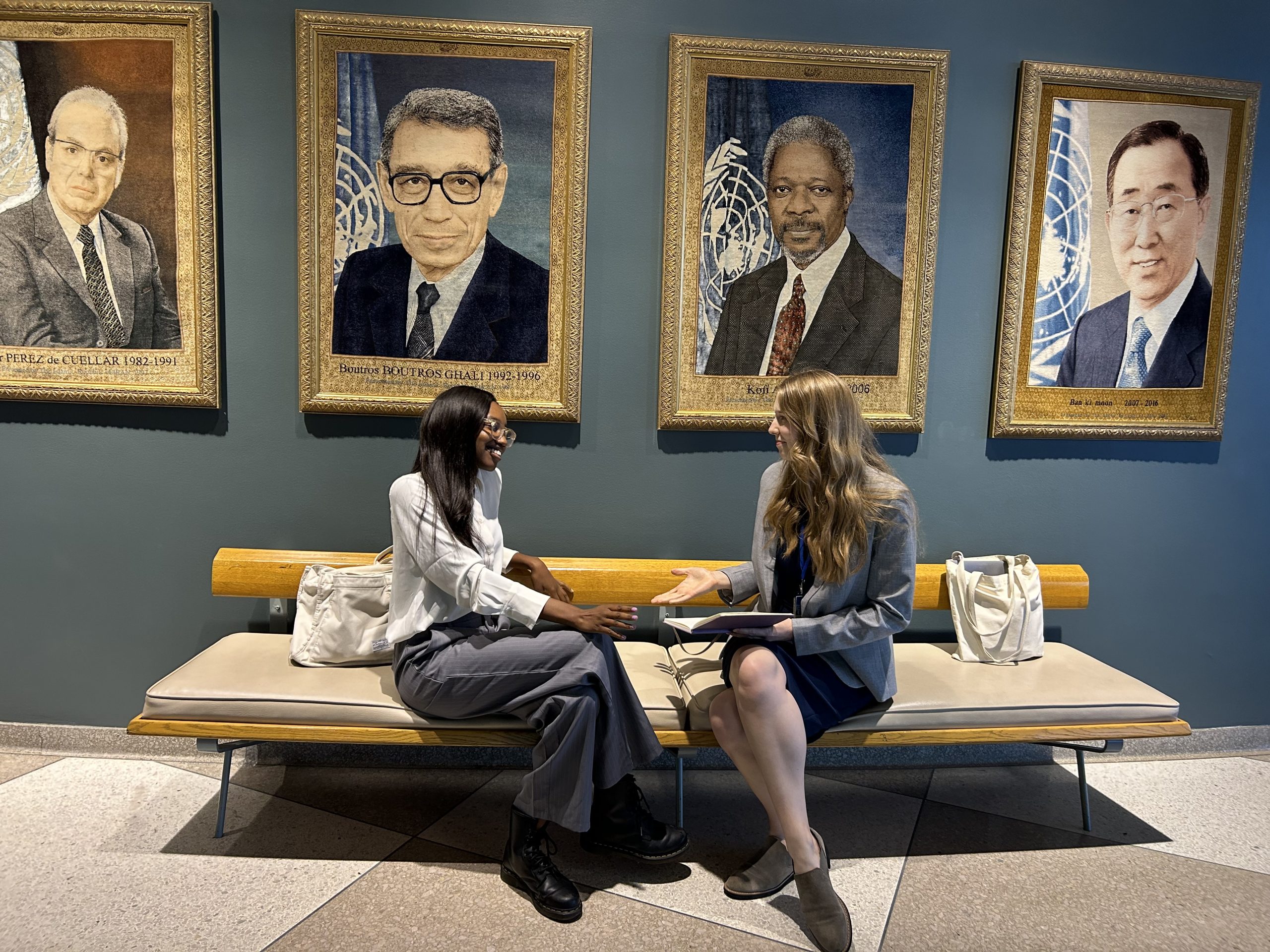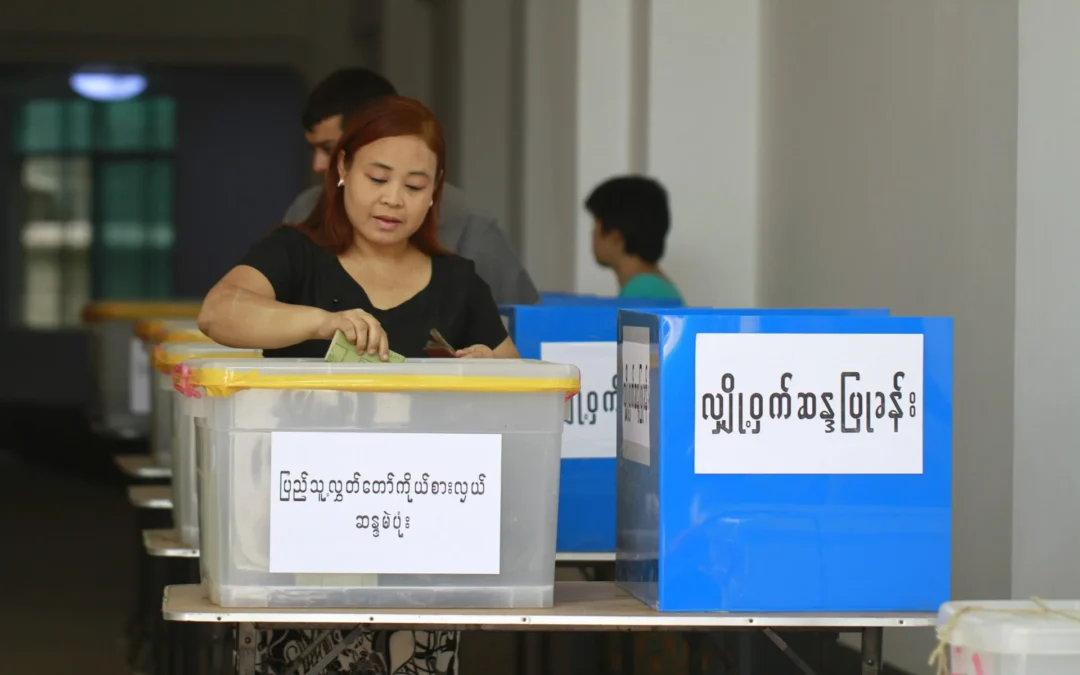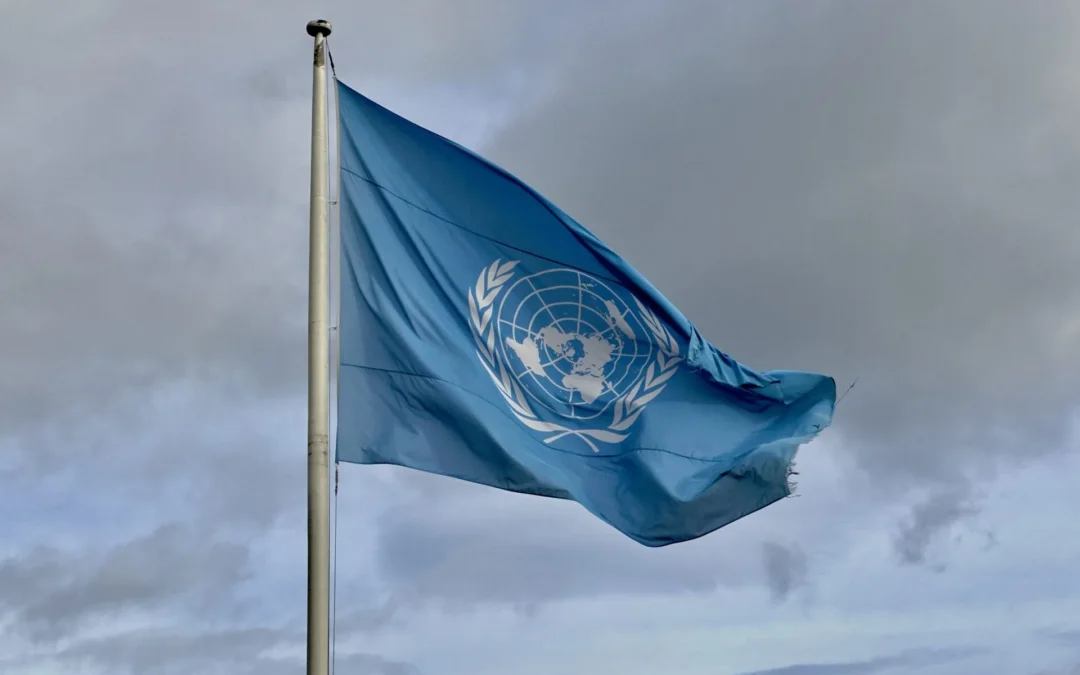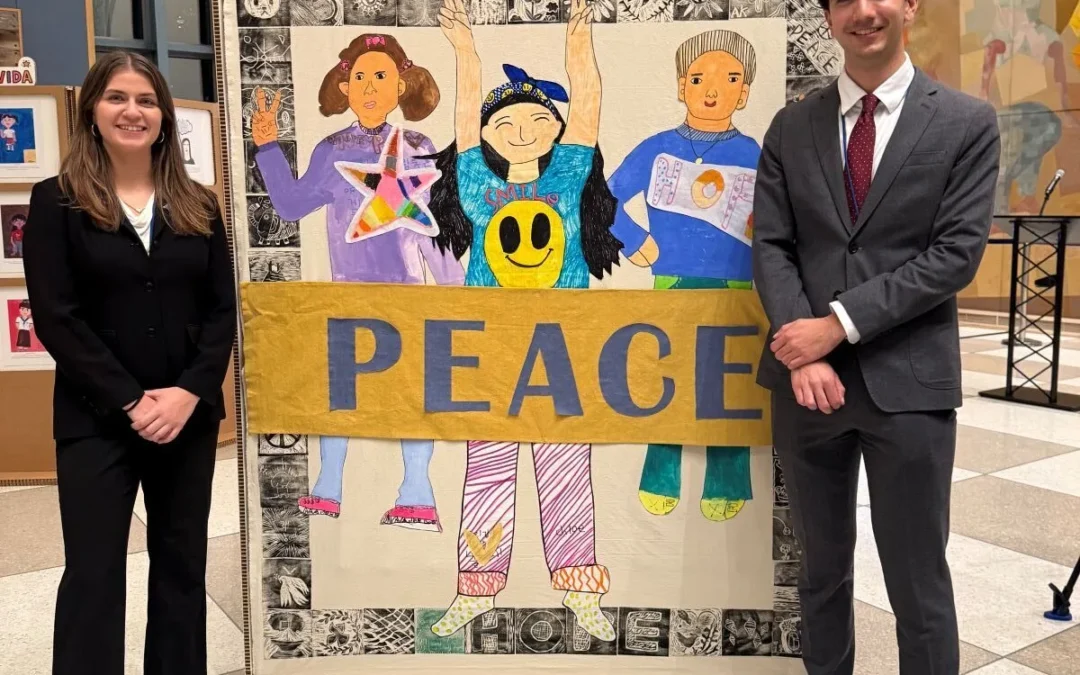I first stepped foot in the UNGA chamber at age eighteen on a tour while visiting New York City with my family. Taking in the vast expanse of delegate seats, the dramatic curve of the ceiling, and the UN seal shining in the distance, I dreamed wildly of one day having a place in that hall. Over the past few weeks, participating in civil society Action Days for Summit of the Future and experiencing the energy around the high-level week of the General Assembly, I thought often of teenage me. She would be amazed, as I am now, to find growing familiarity in the conference rooms and meeting halls of the UN. She would be inspired, as I am now, by people from all over the world coming together to share ideas, build one another's capacity, and imagine new paths of cooperation.
When I think about the world I envisioned as a teenager and compare it to the world now, however, I am disappointed at the progress – or lack thereof – that the international community has made toward a more just and peaceful world. The crises we face feel much more daunting to me now than as a teenager dreaming of world peace. Still, amid the realities of how much there is to change, I see signs of hope.
This year, at the beginning of the traditional high-level meetings, the UN held the Summit of the Future, a series of meetings and negotiations to agree on a Pact for the Future. The Pact is intended to chart a path for the international community to achieve goals toward sustainable development, effective global governance, and renewed peace and security, among other growing challenges. Though the official Summit was restricted to country delegations, members of civil society like QUNO were invited to participate in Action Days before the Summit began. The Action Days and further side events demonstrated clearly the strengths of the UN as well as the deep need for reform.
One of the most significant challenges facing civil society at the UN is its restriction from processes like Summit of the Future. In my first few weeks on the job with QUNO, I am learning that civil society must contort itself to fit the UN system. This further excludes marginalized groups like Indigenous people, young people, and women, who are impeded from reaching traditional decision-making positions by systemic design. Participants in the Action Days expressed that the UN and governments should adapt their processes to work for the people who hold the experiential knowledge of the challenges diplomats seek to solve in the lofty halls of the UN.
A favorite of the events I attended was a “Feminist Fishbowl” that took place during the Global People’s Assembly at the Church Center. Rather than a traditional panel, the participants in the event (most of whom were women) engaged in a dynamic discussion inclusive of the audience of civil society members. It was an example of the best of the UN at work. Women from all over the world shared their experiences, their hopes for the UN system, and what they need from the UN particular to their own contexts. Some women shared their thoughts in their native languages without having to resort to English, thanks to simultaneous translation by other participants.
As Secretary-General Antonio Guterres highlighted in his speech opening the plenary discussion of the 79th General Assembly, less than ten percent of speakers during the high-level plenary were women. Yet, throughout the hours of speeches delivered mostly by men, I noted women holding positions in nearly every delegation each time the cameras panned to the floor. This resonates with one of the most apparent messages I gleaned from these events: women, young people, and other marginalized people are present in critical conversations at the United Nations, and it is time to make room for them in decision-making spaces. I am eager to learn more about efforts to diversify the UN process and continue to push for more inclusion and decision-making power for marginalized people.
As I step into this role and locate where I best fit into the UN system I hold onto these words from Secretary-General Guterres: “The current order always seems fixed until it is not…today our course is unsustainable. It is in all our interests…to choose the future we want and guide our world toward it.” As I contribute to the work of QUNO this year, I will continuously choose to reflect the values of the just peace that I want for human beings all over the world, now and in the future, and remember that each small action guides us one bit closer.







